Kushan Mitra
FactLens: Benchmarking Fine-Grained Fact Verification
Nov 08, 2024



Abstract:Large Language Models (LLMs) have shown impressive capability in language generation and understanding, but their tendency to hallucinate and produce factually incorrect information remains a key limitation. To verify LLM-generated contents and claims from other sources, traditional verification approaches often rely on holistic models that assign a single factuality label to complex claims, potentially obscuring nuanced errors. In this paper, we advocate for a shift toward fine-grained verification, where complex claims are broken down into smaller sub-claims for individual verification, allowing for more precise identification of inaccuracies, improved transparency, and reduced ambiguity in evidence retrieval. However, generating sub-claims poses challenges, such as maintaining context and ensuring semantic equivalence with respect to the original claim. We introduce FactLens, a benchmark for evaluating fine-grained fact verification, with metrics and automated evaluators of sub-claim quality. The benchmark data is manually curated to ensure high-quality ground truth. Our results show alignment between automated FactLens evaluators and human judgments, and we discuss the impact of sub-claim characteristics on the overall verification performance.
A Blueprint Architecture of Compound AI Systems for Enterprise
Jun 02, 2024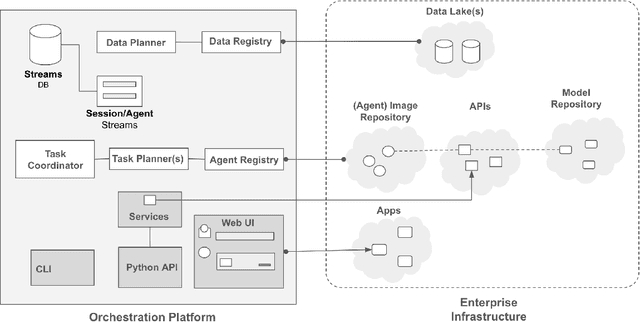

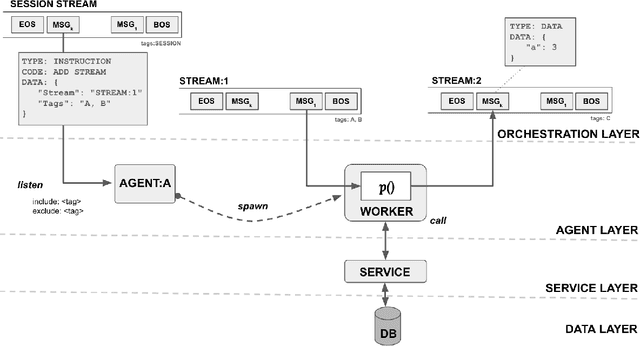
Abstract:Large Language Models (LLMs) have showcased remarkable capabilities surpassing conventional NLP challenges, creating opportunities for use in production use cases. Towards this goal, there is a notable shift to building compound AI systems, wherein LLMs are integrated into an expansive software infrastructure with many components like models, retrievers, databases and tools. In this paper, we introduce a blueprint architecture for compound AI systems to operate in enterprise settings cost-effectively and feasibly. Our proposed architecture aims for seamless integration with existing compute and data infrastructure, with ``stream'' serving as the key orchestration concept to coordinate data and instructions among agents and other components. Task and data planners, respectively, break down, map, and optimize tasks and data to available agents and data sources defined in respective registries, given production constraints such as accuracy and latency.
MEGAnno+: A Human-LLM Collaborative Annotation System
Feb 28, 2024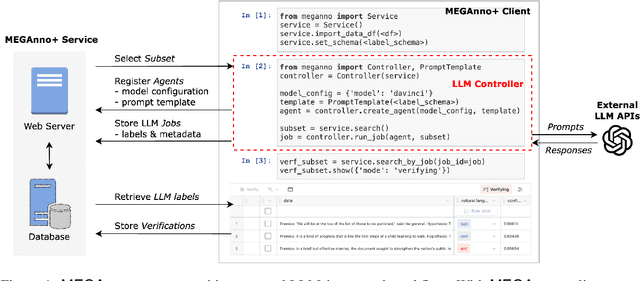
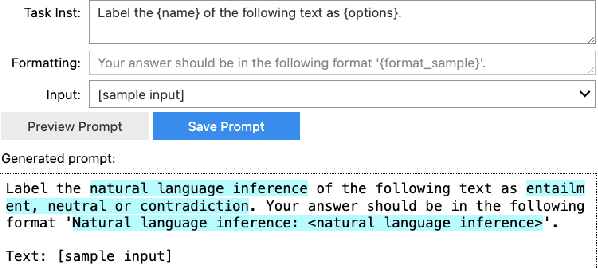

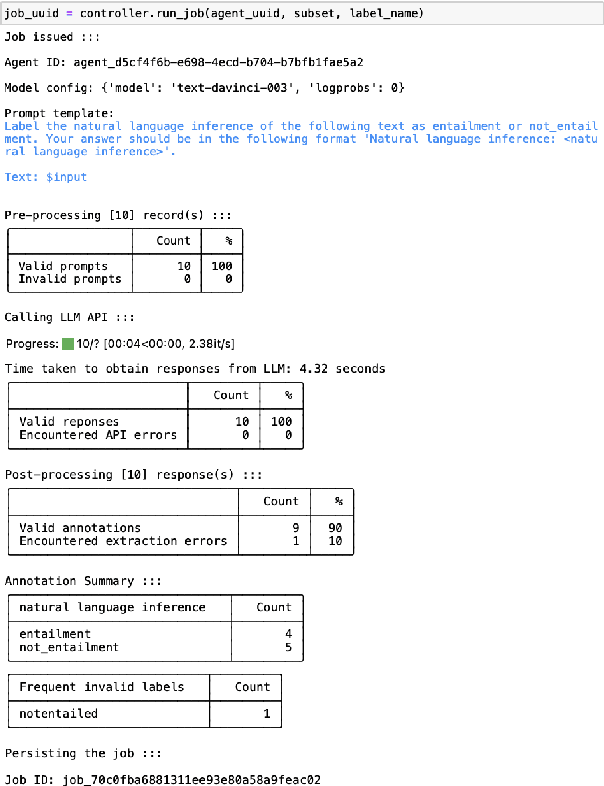
Abstract:Large language models (LLMs) can label data faster and cheaper than humans for various NLP tasks. Despite their prowess, LLMs may fall short in understanding of complex, sociocultural, or domain-specific context, potentially leading to incorrect annotations. Therefore, we advocate a collaborative approach where humans and LLMs work together to produce reliable and high-quality labels. We present MEGAnno+, a human-LLM collaborative annotation system that offers effective LLM agent and annotation management, convenient and robust LLM annotation, and exploratory verification of LLM labels by humans.
Characterizing Large Language Models as Rationalizers of Knowledge-intensive Tasks
Nov 09, 2023



Abstract:Large language models (LLMs) are proficient at generating fluent text with minimal task-specific supervision. Yet, their ability to provide well-grounded rationalizations for knowledge-intensive tasks remains under-explored. Such tasks, like commonsense multiple-choice questions, require rationales based on world knowledge to support predictions and refute alternate options. We consider the task of generating knowledge-guided rationalization in natural language by using expert-written examples in a few-shot manner. Surprisingly, crowd-workers preferred knowledge-grounded rationales over crowdsourced rationalizations, citing their factuality, sufficiency, and comprehensive refutations. Although LLMs-generated rationales were preferable, further improvements in conciseness and novelty are required. In another study, we show how rationalization of incorrect model predictions erodes humans' trust in LLM-generated rationales. Motivated by these observations, we create a two-stage pipeline to review task predictions and eliminate potential incorrect decisions before rationalization, enabling trustworthy rationale generation.
 Add to Chrome
Add to Chrome Add to Firefox
Add to Firefox Add to Edge
Add to Edge